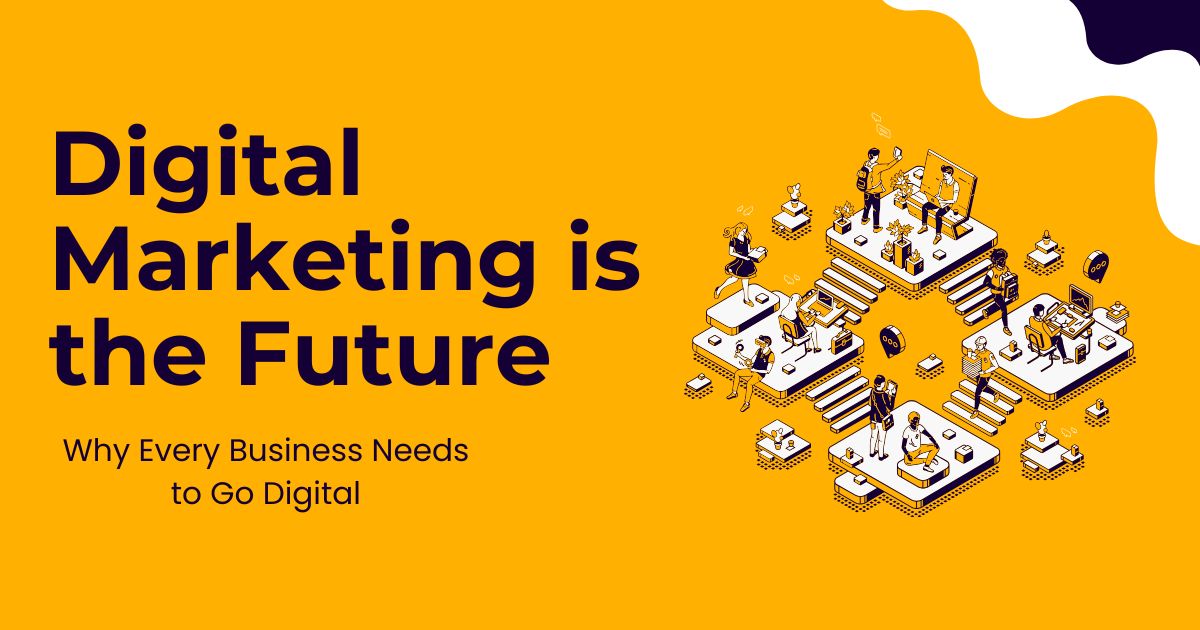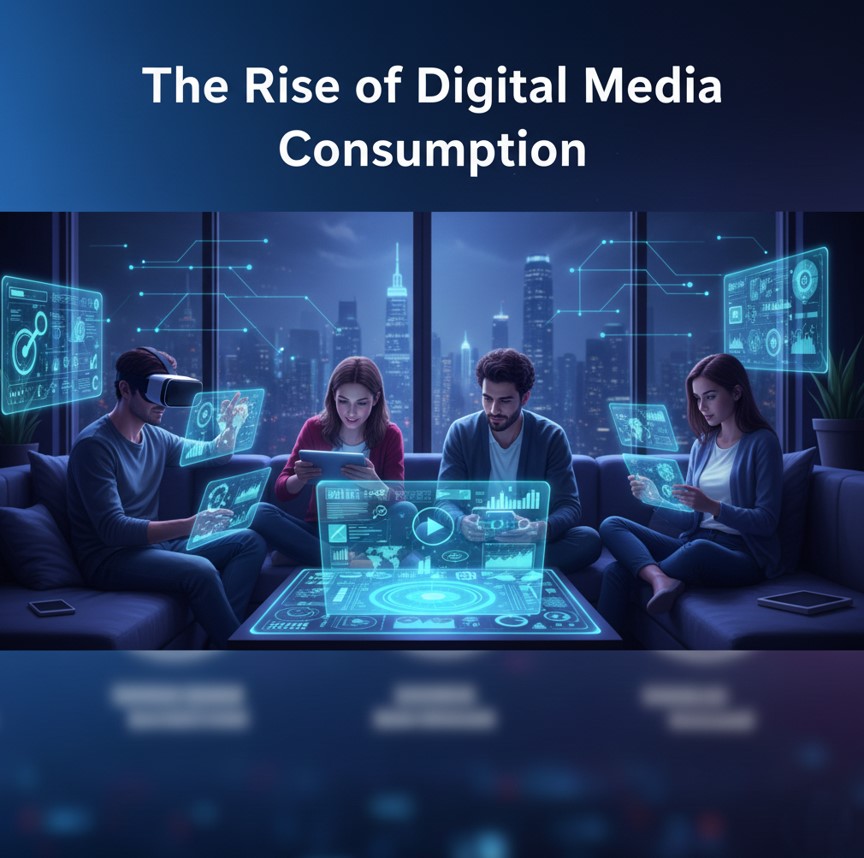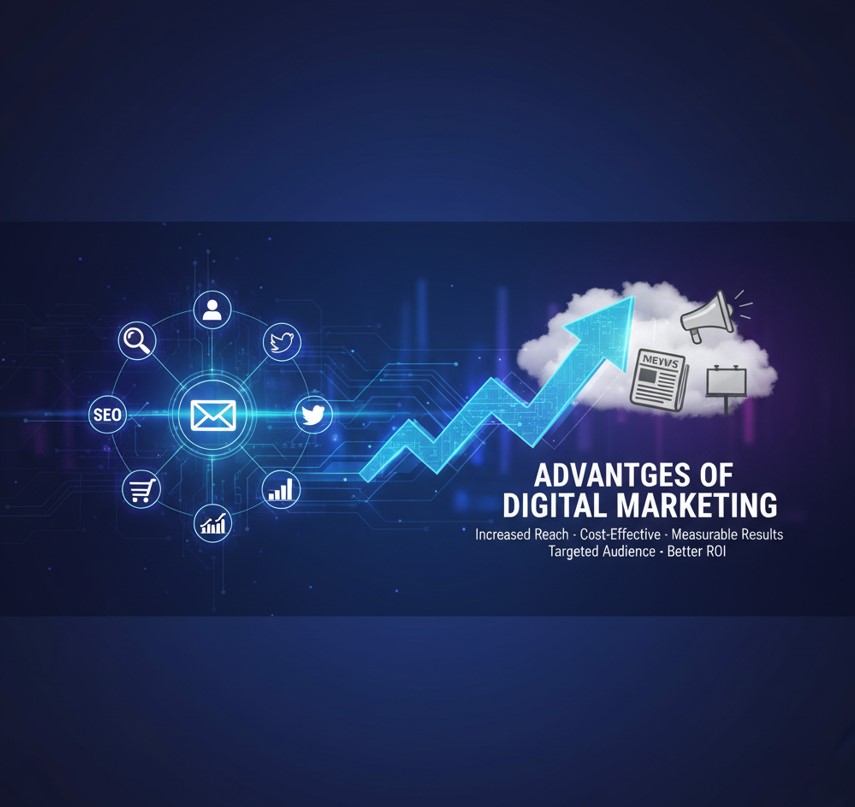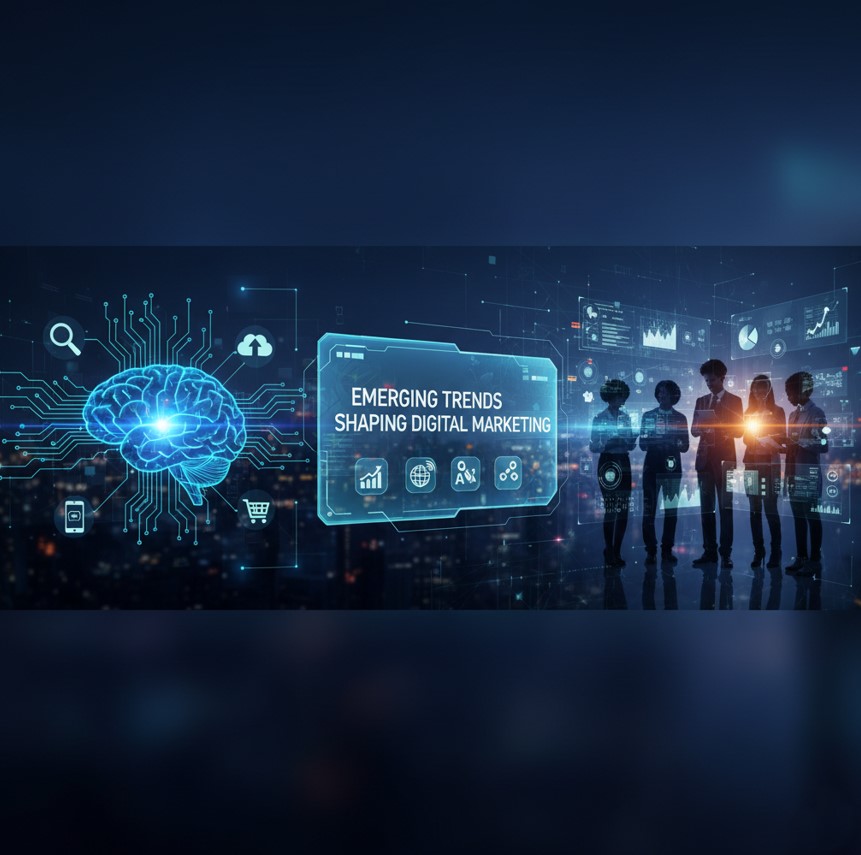
The way we promote and connect with audiences has completely transformed in recent years. Today, digital marketing isn’t just a supplement to a brand’s strategy; it’s the heart of it. If you’re wondering why digital marketing is the key to success moving forward, this blog will break down the critical reasons driving its dominance and how businesses can capitalize on its benefits in the years ahead.
Here’s What We’ll Cover:
-
The rise of digital media consumption
-
Key advantages of digital marketing over traditional methods
-
How emerging technologies and trends are shaping its future
-
Actionable steps to future-proof your digital strategy
The Rise of Digital Media Consumption
One of the most obvious reasons digital marketing is set to dominate is the staggering uptick in digital media consumption. According to Statista, the average internet user spends over seven hours per day online. Smartphones, social media platforms, and streaming services have drastically reshaped how individuals consume content, shop, and even interact with brands.

Why does this matter to businesses?
Think about it this way—your target audience is likely living a significant portion of their life online. If your brand isn’t meeting them where they are, you’re missing out on massive opportunities.
The Decline of Traditional Advertising
Print and TV ads used to drive marketing strategies. However, consumers today are increasingly bypassing TV commercials with streaming subscriptions or blocking print ads with ad-free digital formats. Traditional ads are no longer as effective or as measurable compared to digital tactics.
Key data highlights this shift:
-
Pew Research found that digital ad spending globally reached $567 billion in 2022, overtaking traditional advertising by a wide margin.
-
A growing segment of millennials and Gen Z now rely on digital influencers and online reviews instead of TV commercials and direct mail.
Simply put, digital marketing isn’t just adapting to modern lifestyles; it is the modern lifestyle.
Advantages of Digital Marketing
Unlike traditional forms of marketing, digital marketing offers distinct advantages that give brands a significant edge in reaching and engaging with their target audiences.

1. Cost-effectiveness
Advertising budgets can stretch much further using digital platforms. Whether it’s pay-per-click advertising on Google, organic reach through social media, or email marketing campaigns, small businesses, in particular, can compete with larger enterprises in an affordable way.
For instance, you could spend thousands creating a short TV ad that airs a handful of times, or you could allocate that same budget to a month-long targeted Facebook campaign that tracks real-time performance.
2. Targeted Reach
Digital marketing enables businesses to target their audience with pinpoint precision. Platforms such as Google Ads or Meta’s advertising suite allow marketers to specify demographics, interests, online behaviors, and even geographical regions.
A retail store in Los Angeles, for example, could focus its online ad spend exclusively on local customers searching for terms like “boutique near me.”
3. Data-driven Insights
One of the most powerful benefits of digital marketing is the ability to measure performance instantly. Unlike a billboard or radio ad where results are intangible, digital marketers can use tools like Google Analytics or HubSpot to:
-
Track click-through rates
-
Assess bounce rates
-
View customer acquisition costs
-
Identify which demographics are converting at the highest rates
This data provides valuable information to improve campaigns continually.
4. Personalization
Modern consumers want personalization over one-size-fits-all approaches. Email marketing tools, AI chatbots, and retargeting ads can deliver highly relevant content directly to individual customers based on their preferences. Tailored suggestions or discounts create a sense of connection that fosters brand loyalty.
Emerging Trends Shaping Digital Marketing
Digital marketing is continually evolving, and its future looks more exciting than ever, thanks to innovative technologies and emerging trends.

Artificial Intelligence (AI)
AI is revolutionizing digital marketing by automating processes and enabling smarter decision-making. AI-powered tools like Jasper, HubSpot, or ChatGPT are helping businesses create personalized emails, craft engaging social media content, and optimize customer interactions.
Predictive analytics, for instance, allows marketers to anticipate a customer’s needs even before they’re expressed, enabling hyper-targeted experiences across all touchpoints.
Video Content Domination
By 2023, over 80% of online traffic is expected to come from video content (Cisco). Platforms like TikTok and Instagram Reels are proof that short, engaging video is the future of content marketing.
Businesses that successfully incorporate video as a means to tell their story, demonstrate product usage, or engage their audience will undoubtedly thrive.
Voice Search Optimization
Search Engine Optimization (SEO) is no longer just about keywords. With the rise of smart speakers like Alexa and Google Home, voice search has become mainstream. Ensuring your content is voice-search friendly will drive traffic to your brand in ways text-based approaches simply can’t.
Interactive and Immersive Experiences
Augmented reality (AR) and virtual reality (VR) are lifting digital marketing to the next level. Retailers like IKEA have introduced AR apps where users can visualize a piece of furniture in their home before purchasing. These immersive experiences give customers the confidence they need to make decisions while enhancing the connection they feel to brands.
How to Future-proof Your Digital Marketing Strategy
To stay ahead of the competition and adapt to the ongoing evolution of digital marketing, businesses should implement these actionable steps:
-
Invest in data analytics tools: Understanding customer behavior through robust data collection tools will allow you to make informed decisions based on actual performance metrics.
-
Optimize for mobile-first audiences: With mobile search accounting for over 50% of web traffic globally, ensuring your platforms are responsive is crucial.
-
Focus on authentic storytelling: Build trust by creating genuine, transparent content that reflects your brand’s values and mission.
-
Utilize emerging platforms: Keep an eye on where younger audiences are heading. Apps like Be Real and Clubhouse may become tomorrow’s major networks.
-
Test, analyze, and iterate: Think of every campaign as an experiment. Test different approaches, see what resonates most, and refine your strategy from there.
Closing Thoughts on the Role of Digital Marketing
Digital marketing is no longer an option; it’s a necessity. Its ability to provide measurable results, engage audiences in real-time, and adapt to technological advancements ensures its dominance in the years ahead.
Businesses that fully integrate digital marketing into their strategies will not only remain competitive but position themselves for sustainable growth in an increasingly digital-first world.


Leave a Reply